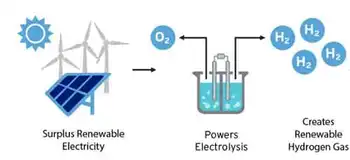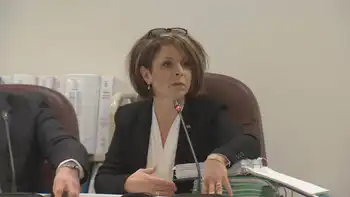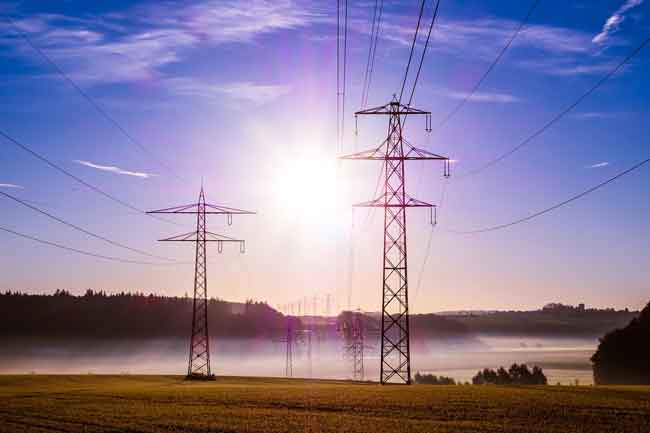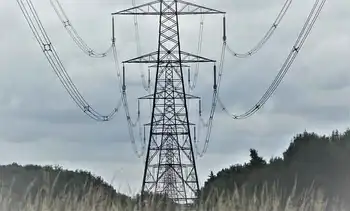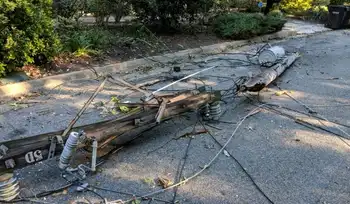Jefferson County group up in arms over choice of routes
By Milwaukee Journal Sentinel
High Voltage Maintenance Training Online
Our customized live online or in‑person group training can be delivered to your staff at your location.

- Live Online
- 12 hours Instructor-led
- Group Training Available
But now, dozens of Lake Mills- and Waterloo-area residents are mobilizing against the state Public Service Commission's decision last summer to put the line along scenic roads and bike routes instead.
They have formed a group, Save Our Towns and Treasured Roads from Offensive Powerlines, that's raising money to pay lawyer fees. They're collecting donations, holding rummage sales, even selling Christmas cookies, said Bill Dandoy, a leader of the group.
"For many of us here, this has almost completely consumed our lives since July 20, when they came out with the decision," said Dandoy, who lives along Newville Road in Waterloo. "This isn't something that any of us asked for."
In some ways, this could be viewed as another case of not-in-my-backyard protests against a new infrastructure project. But this case pits a Madison-based environmental group and its plans to preserve a scenic wildlife area against Jefferson County residents and county elected officials who say the Public Service Commission made the wrong choice.
The case of this 17-mile power line has now spawned three different lawsuits, one filed by Jefferson County, one filed by the citizens group, and one filed by the group that prevailed before the state Public Service Commission.
The Madison Audubon Society, which is working to preserve the Faville Grove wildlife area, filed suit in Dane County Court disputing whether the line has to be built at all.
The litigation makes it somewhat challenging for American Transmission to move forward with plans to build the line, estimated to cost $23 million.
Utility spokeswoman Annemarie Newman said the company is continuing to work on planning for the line but isn't scheduled to start building this stretch of the line for some time. ATC said the line is needed to help the electrical system keep up with rapid development in Jefferson County.
"We are authorized to proceed; however, we recognize the sensitivity in the area, and recognize the courts could ask the commission to do something different," she said.
ATC originally sought to build the line along state Highway 89, but that choice resulted in protests from the Madison Audubon Society, as well as descendants and former students of Wisconsin conservationist Aldo Leopold, who once did research on plants and wildlife in the area.
"We believe that the record was thorough, and the commission made the decision it felt was appropriate, and we are pleased to have authorization to construct a project that's needed to support the area," Newman said.
Newman said American Transmission was not critical of the commission's route selection, even though the utility's preference was not selected.
"We proposed two viable routes and the routing decision was the commission's," she said.
The decision by the commission came after a period of review and personal visits to the site by both members of the commission who voted on the case.
Both commissioners, Dan Ebert and Mark Meyer, said they were convinced by their tour of the site that Highway 89 was not the best choice for the line, given both the legacy of Leopold and the environmental characteristics of the route.
But Madison lawyer Frank Jablonski termed the PSC's choice "mind-boggling," given that a small power line already crosses the sanctuary land.
The route selected by the commission, Newville Road, has no power line at all in some stretches. Newville Road has more of an "enclosed, tree-lined, rural feeling," said Jablonski, who is representing the citizens group. For its part, the Audubon Society wants the line blocked entirely - but if the court agrees the line is needed, the Audubon Society wants the commission's routing choice upheld, said David Bender, a Madison lawyer representing the wildlife group.
"Our suit is based on the fact that they didn't meet their burden of proof to show that a line was actually needed," Bender said.
The volunteer managers of the Faville Grove Sanctuary, who are members of the Madison Audubon Society, said a 110-foot power line in the area of the sanctuary would mar restoration efforts as well as the pleasure visitors have when visiting a prairie that Leopold himself sought years ago to preserve.
The Jefferson County residents seeking to reverse the commission's decision face long odds, as the PSC has a strong track record in recent years of winning court cases challenging its decisions.
That stems in part from a deferential legal standard used by the state Supreme Court two years ago. At that time, in a split decision, the court gave Milwaukee-based Wisconsin Energy Corp. the go-ahead to build the costliest power plant project in state history, the more than $2 billion expansion of the coal-fired power plant in Oak Creek.
Before the matter heads to trial, judges involved in the case must first sort out where the court cases are heard. The Dane County judge involved in the case, Circuit Judge C. William Foust, must first decide whether to hear all three cases himself or allow the case to be decided in Jefferson County. A hearing on that issue is scheduled for Jan. 27.
Waterloo and Lake Mills residents want their case decided locally, Dandoy said.
People who feel wronged by the Public Service Commission's decision "are getting a little bit tired of Madison making decisions for Jefferson County," he said.





